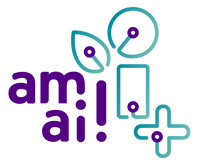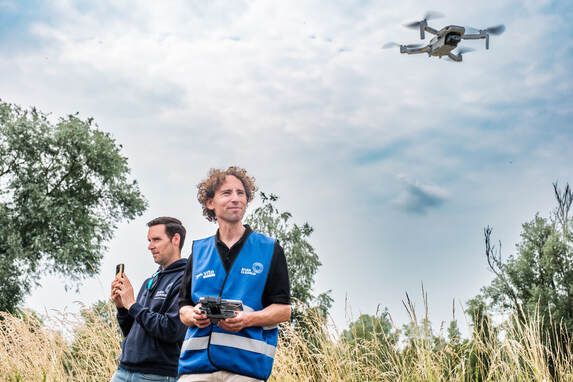Phase 4: AI-projects
The funed projects make ideas true and involve citizens in the development.
At the time of writing, 14 projects (in Dutch) have been funded in the amai! trajectory:
- amai! 1: four projects
- amai 2: five projects
- amai! 3: five projects
These projects always involve the development of an AI system in which citizens play a role. They also involve a collaboration between an AI company, a research institution, a citizens' movement, a non-profit organization, and/or a local government. The projects have a maximum duration of 2 years
The funed projects make ideas true and involve citizens in the development.
At the time of writing, 14 projects (in Dutch) have been funded in the amai! trajectory:
- amai! 1: four projects
- amai 2: five projects
- amai! 3: five projects
These projects always involve the development of an AI system in which citizens play a role. They also involve a collaboration between an AI company, a research institution, a citizens' movement, a non-profit organization, and/or a local government. The projects have a maximum duration of 2 years
Support from amai! - Information sessions for projects
Support from amai! - Intervision sessions
Several times a year, amai! organizes an intervision moment for the projects. These are moments when projects can present the challenges they face to the other projects. During these moments, projects share questions, experiences, and insights with each other, helping them to successfully complete their project.
Support from amai! - Communication
The projects are not only there to create impact but also to clarify to citizens how an AI system comes about. That's why we report monthly on the progress of the projects, so that even those who are not actively involved in a project have insight into how AI is developed. This happens on the website, in our newsletter, etc. We also highlight the projects during our activities, e.g., by letting them showcase a demo at a science festival or at an information market in a library.
- Attention is paid to the societal impact of AI innovation. For this, the guidance ethics approach is used as a framework, where the technology is viewed in context, serving as a starting point to consider what is needed from the user, the environment, and the technology itself to avoid negative effects.
- Projects receive advice on how they can involve citizens in their project. How can citizens contribute or annotate data, sharpen the questions that the AI project must address, or how can they help model the solution? They can turn to the amai! team with questions about citizen science.
Support from amai! - Intervision sessions
Several times a year, amai! organizes an intervision moment for the projects. These are moments when projects can present the challenges they face to the other projects. During these moments, projects share questions, experiences, and insights with each other, helping them to successfully complete their project.
Support from amai! - Communication
The projects are not only there to create impact but also to clarify to citizens how an AI system comes about. That's why we report monthly on the progress of the projects, so that even those who are not actively involved in a project have insight into how AI is developed. This happens on the website, in our newsletter, etc. We also highlight the projects during our activities, e.g., by letting them showcase a demo at a science festival or at an information market in a library.

